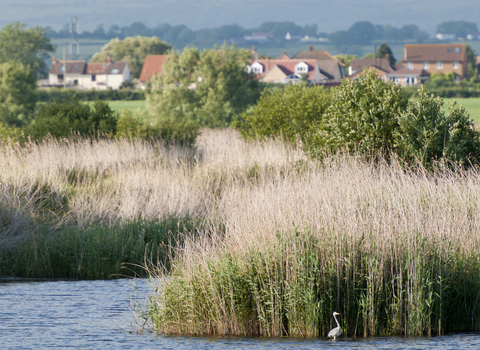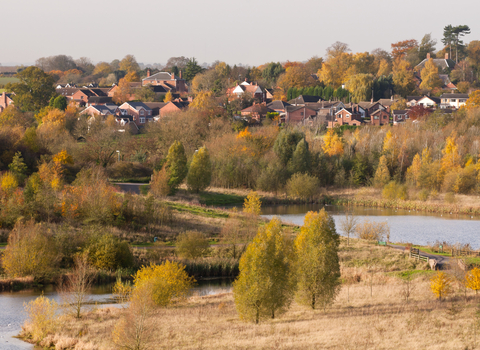It's not "nature or development". It's both.
There is a nature crisis and a housing crisis. The Government suggests their Planning and Infrastructure Bill will be the antidote to both these problems by speeding up the building of 1.5 million new homes whilst enabling large scale nature conservation projects across England.
However, parts of the Bill currently threaten nature's recovery in England. This isn’t good for wildlife, or people.
BBOWT is concerned that without amendments, the proposed legislation will cause a huge backward step in environmental law and protections for some of our most important and vulnerable habitats and species.
What you can do
Want development to work in harmony with nature?
Co-sign our open letter - you can also add your thoughts about the "nature vs development" debate. This open letter will go to Angela Rayner, the Deputy Prime Minister and Secretary of State for Housing, Communities and Local Government, with your thoughts included.
Sign the letter and have your say
After you sign, you can take the opportunity to email the editor of your local newspaper too. Local media is a great way to highlight your concerns to others. If you mention your MP it's likely that their press monitoring service will alert them to what you are saying, so it is also a good way to get your MP’s attention.
Part Three and the so called ‘Nature Restoration Fund’ explained
What does the Bill mean for developers and nature?
Part Three of the Planning and Infrastructure Bill ‘Development and Nature Recovery’ will grant new powers to Natural England to design and deliver Environmental Delivery Plans (EDPs). These plans will identify environmental features that will be negatively affected by developments in a particular area. Money from the new Nature Restoration Fund will then be used to deliver conservation measures to offset these harms. Essentially, it allows developers to pay for a licence to trash nature.
Where implemented, these EDPs will replace obligations under the Habitat Regulations that require developers to assess the impacts of projects on protected features of protected sites or species. Instead of carrying out project level assessments, developers will be able to pay to offset the harms they create without assessment.
By allowing developers to pay a levy into the Nature Restoration Fund that natural England will use to deliver Environmental Delivery Plans, this Bill intends to enable developers to meet their environmental obligations more easily without reducing already existing protections for the environment.
In theory, well designed and fully funded Environmental Delivery Plans could be effective for restoring nature in certain areas for particular environmental problems. The intent of the legislation is positive, but its content leaves us concerned.

Photo by Ross Hoddinott/2020Vision
In its current form the legislation will not guarantee adequate environmental recovery, and in fact it risks undermining much of the hard-won progress for environmental protection that has been gained over the last 70 years.
It could represent the biggest attack on our environmental protections for a generation.
BBOWT believes that without adequate amendments the Bill will lead to:
- An undermining of the mitigation hierarchy and the polluter pays principle
- Compensation for environmental damage not being delivered in the locations where the harm takes place. This risks urban areas being even more cut off from their local nature
- Risks Natural England’s work becoming dependent on the facilitation of development
- If an EDP fails to deliver an environmental measure there is no obligation on Natural England to undertake the necessary procedures to remediate this
- The standards for having an EDP signed off by the Secretary of State are not stringent enough to ensure that EDPs will always deliver positively for nature
- A risk that EDPs will not be delivered in perpetuity and that irreparable damage may occur if conservation measures are not delivered prior to the harm from development
- Developers being disincentivised from creating high quality habitats on site.
Planning bill would allow builders to ‘pay cash to trash’ nature, warns UK experts in letter to MPs
Don’t let this Bill become law without the safeguards needed to protect nature.
The UK Government needs to understand that high-quality, sustainable development doesn't need to be at the expense of struggling wildlife or climate. It’s not a one or the other decision. With some specific changes to the Bill that are easy to agree to now, we can have wilder, healthier homes in the future.
Read more about our specific concerns in these blogs and briefings:
A house divided cannot stand - Estelle Bailey, Chief Executive of BBOWT
Reforms must protect nature - Matthew Stanton, Director of External Affairs
Planning by numbers - Becky Pullinger, RSWT Head of Land Use Planning

